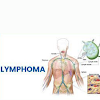Mental illness is a growing concern in our society today. It is estimated that one in every four people in the world will experience some form of mental illness in their lifetime. Mental illnesses can range from mild to severe and can affect people in different ways. This article will provide an overview of the most common types of mental illnesses.
Types of mental illness
Depression:
Depression is a common mental illness that affects millions of people worldwide. It is characterized by feelings of sadness, hopelessness, and lack of motivation. Depression can also cause physical symptoms such as fatigue, changes in appetite, and sleep disturbances. People with depression may also have difficulty concentrating and making decisions.
Anxiety Disorders:
Anxiety disorders are a group of mental illnesses that are characterized by excessive worry and fear. Some common anxiety disorders include generalized anxiety disorder, panic disorder, social anxiety disorder, and phobias. People with anxiety disorders may experience physical symptoms such as sweating, rapid heartbeat, and shaking.
Schizophrenia:
Schizophrenia is a severe mental illness that affects how a person thinks, feels, and behaves. People with schizophrenia may experience symptoms such as hallucinations, delusions, and disordered thinking. Schizophrenia can also cause difficulty with communication and social interaction.
Bipolar Disorder:
Bipolar disorder is a mental illness that causes dramatic shifts in mood, energy, and activity levels. People with bipolar disorder may experience episodes of mania and depression. Mania is characterized by excessive energy, irritability, and impulsive behavior.
Obsessive-Compulsive Disorder (OCD):
Obsessive-Compulsive Disorder is a mental illness that is characterized by repetitive thoughts and behaviors. People with OCD may have intrusive thoughts (obsessions) that cause significant anxiety. To reduce this anxiety, they may engage in repetitive behaviors (compulsions).
Eating Disorders:
Eating disorders are a group of mental illnesses that involve abnormal patterns of eating behavior. Some common eating disorders include anorexia, bulimia, and binge-eating disorder. Eating disorders can cause significant physical and mental health problems.
Conclusion
In conclusion, mental illness is a complex issue that affects people in different ways. It is important to understand the different types of mental illnesses and to seek help if you are experiencing symptoms. With the right treatment and support, people with mental illness can lead healthy and fulfilling lives.






0 Comments